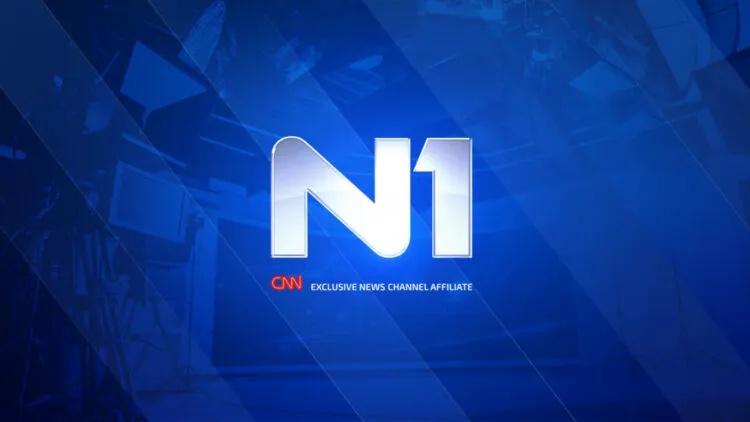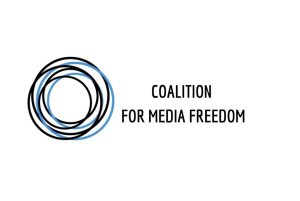The sudden dismissal of United Group (UG) founder Dragan Solak and CEO Viktorija Boklag has raised serious concerns among editors within United Media (UM) – a UG subsidiary that includes N1 and Nova TV across Southeast Europe. Editors are warning of possible political interference and threats to editorial independence.
Of course, the red alarm immediately went off,” said Maja Sever, President of the European Federation of Journalists (EFJ), in an interview with Radio Free Europe (RFE). The EFJ has backed a public appeal issued by UM editors across Serbia, Croatia, Bosnia and Herzegovina, Slovenia, Bulgaria, and Montenegro.
The editors’ letter expressed fears that BC Partners, the majority shareholder in United Group, may be under political pressure. They warned that such influence could jeopardize editorial independence and create space for governments and interest groups hostile to media freedom to assert control.
United Media is a major media company in the region and part of UG, which spans multiple countries. The removal of Solak and Boklag sparked the appeal, in which editors cited Solak’s crucial role in defending editorial independence under intense political and economic pressure, particularly in Serbia.
In the letter, editors called on BC Partners to publicly reaffirm its commitment to editorial independence and to refrain from staffing or managerial decisions that could endanger that principle. Internally, staff were told in a corporate memo that operations remain unchanged across all markets.
United Group responded to RSE with a brief statement affirming its continued commitment to journalistic and editorial independence.
Sever emphasised the significance of the editors’ alarm. “We know how much N1 means in our media environments. Especially in Serbia, where if something goes wrong, it’s as if the light has gone out,” she said.
The editors’ letter has been sent to European Commission President Ursula von der Leyen, EU commissioners, members of the European Parliament, the European Federation of Journalists (EFJ), Reporters Without Borders (RSF), the International Press Institute (IPI), and the Committee to Protect Journalists (CPJ).
“Our priority is to understand what these changes mean for end users, citizens, and the journalists creating this content,” Sever added. She warned that management changes could directly affect those working honestly in journalism and highlighted the immeasurable impact of UM journalists on democratic development and press freedom, particularly in Serbia and Croatia.
UM has not responded to further RSE inquiries about the appeal or future direction of its network.
RSF urges clarity
RSF representative Pavol Salaj urged United Media, UG, and BC Partners to provide a clear signal affirming their commitment to editorial independence.
“It is very important that these media continue to operate freely under political pressure, in line with the EU Media Freedom Act,” said Salaj. He underscored RSF’s duty to monitor the strategy of UG’s current owners, especially as Serbia experiences unprecedented political pressure on the media.
He added that UM-owned media, though frequently attacked and threatened, continue to deliver quality journalism in the public interest.
Business dispute or political interference?
Jasen Guev, a business consultant and analyst in Sofia, downplayed political motives, attributing the leadership changes to a long-standing shareholder dispute. He said the disagreements, particularly over investments and business operations in Greece, eventually led to the current reshuffling.
According to Guev, these developments will not impact the functioning of Nova TV in Bulgaria. “It will continue as before. Whether a local buyer emerges or the current owners sell remains an open question,” he noted.
He also suggested that such investors typically avoid conflict and would not want to be accused of undermining media freedom.
BC Partners and UG’s regional influence
BC Partners is a London-based investment firm founded in 1986, with offices in the U.S., France, and Germany. It manages over €18 billion in private equity and credit assets. In 2018, it acquired a majority stake in United Group for €2.6 billion, gaining control over cable provider SBB, then the main rival to state-owned Telekom Srbija.
SBB remained part of UG until February 2025, when it was sold to e& PPF Telecom Group. While PPF acquired SBB’s user base and operations, its satellite division was sold to Telekom Srbija.
On June 18, Serbian President Aleksandar Vucic commented on Solak’s dismissal, claiming that he was “one of the key initiators of a colour revolution in Serbia” and worked with foreign intelligence agencies. The term “colour revolution” refers to the ousting of authoritarian regimes in former Soviet states.
Serbian authorities, without evidence, accuse Western agencies of backing student protests that began in Novi Sad and escalated into calls for early elections. Vucic and other SNS officials have long targeted UM media, branding N1 as “CIA television,” “anti-Serbian,” and a “tycoon outlet.”
In May 2023, then-Prime Minister Ana Brnabic said: “You have tycoon media that report biasedly, spread half-truths and direct lies by the minute.”
SNS leaders refuse to appear on N1 and Nova S. Nowhere else in the region are UG media subjected to such intense governmental hostility.
Professor Rade Veljanovski said the president and his team frequently disparage independent journalists. “They want a media system that promotes government policy at every level,” he said.
Journalist and professor Dinko Gruhonjic noted that UG’s outlets, particularly N1, have assumed the public service role that state broadcasters often neglect. “Shutting them down or ‘disciplining’ them would result in a media blackout akin to Hungary under Viktor Orban,” Gruhonjic warned.
Serbia ranks 96th out of 180 in the RSF World Press Freedom Index. Despite a two-place rise from 2024, its overall index score has declined due to political interference and abusive SLAPP lawsuits.
Source: N1




